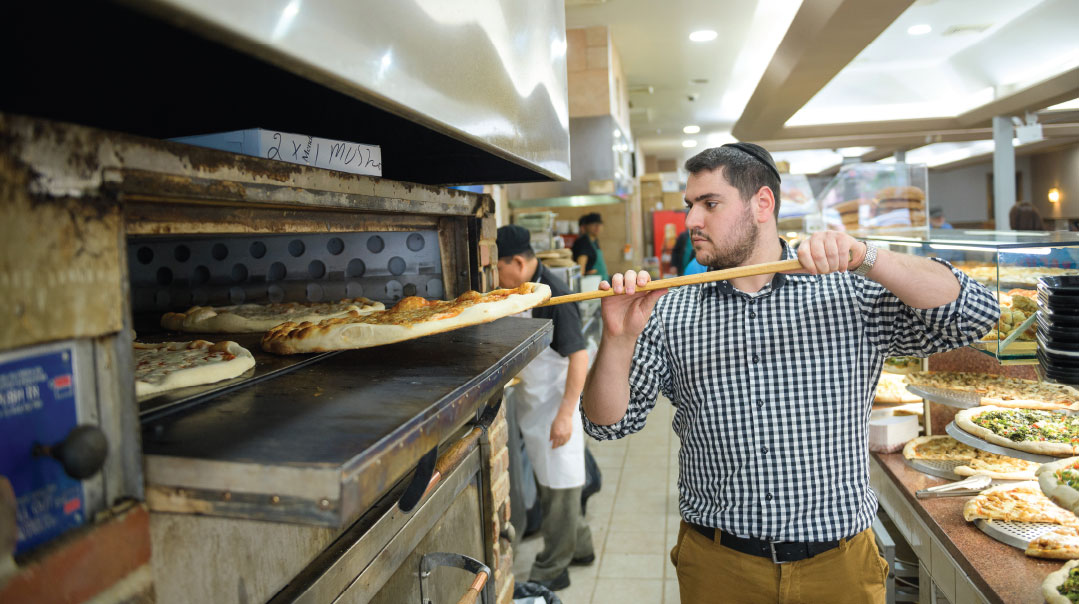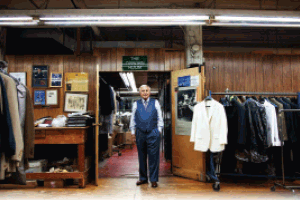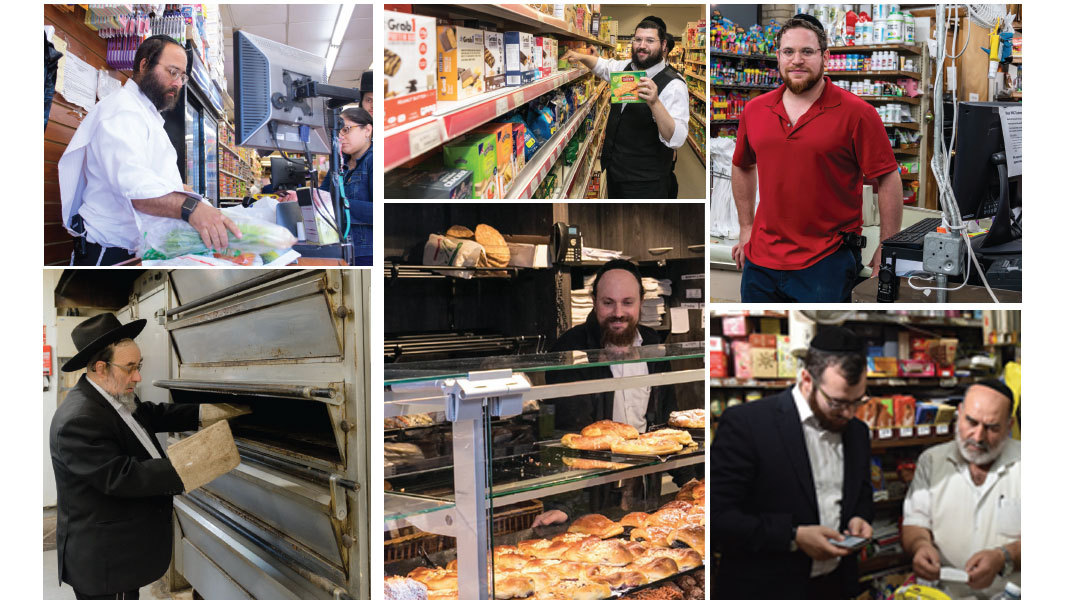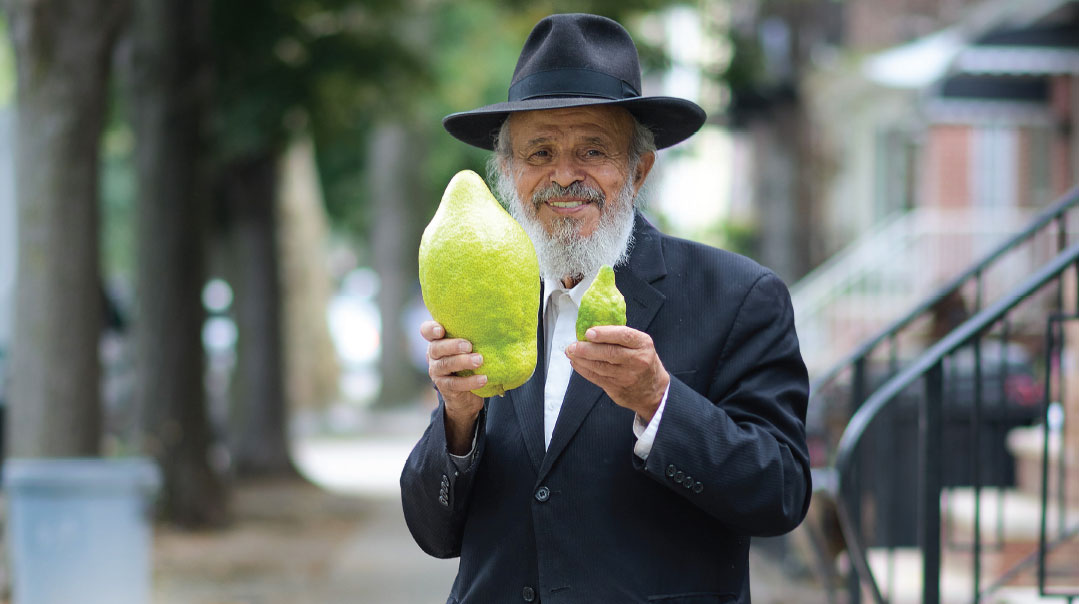Moving Out, Moving On
| February 28, 2018For many of us, home is part of our self-definition. That’s perhaps why moving shakes our inner world, stirring up anxiety and trepidation in some situations, or triggering hope and happiness under different circumstances

Moving from the Memories
"Mommy, when I get married, you’re going to live with me, too.” My lashes drooped heavily as I lay half asleep in the cocoon of my mother’s arms.
“What’s your husband going to think?” My mother laughed, easy and light.
“He’ll love it, or I’m not marrying him.”
“Well, angel,” my mother said, kissing me goodnight, “we have time to figure out our living arrangements. You’re only five.”
Fast forward 20 years. I lay on my couch, snood askew, drinking a steamy mug of tea as my mother holds my newborn, lovingly stroking his cheek. “Mom, you know, you could totally live with me. It would be great. We could go out for breakfast and go shopping all the time. And you could bake bread with the kids.”
Mom laughed that easy, light laugh. “I don’t bake bread.”
“Okay, pecan pie or banana cake or whatever, all day. And you could fold the laundry like you’re soooo good at.” Idyllic images of non-stop maternal support overwhelmed me with glee in my postpartum daze.
“Angel, while it’s tempting to stay and be your personal shopper, baker, and maid, I think you’re doing great as an adult whose mother doesn’t live with her.”
I always harbored a secret (okay, not so secret) desire to live with my mom when she grew old and needed care. It was Hashem’s will, however, that Mom needed care long before she grew that old, and in the final stages of my mother’s terminal illness, I found my 30-year-old self making arrangements to fly Mom from Vancouver to Montreal to live with us.
Ten weeks passed in a painful, scary blur, and on Yom Kippur, my mother’s condition turned from terminal to palliative, with days to live. Without arrangements for a palliative care facility, I called our rav.
“The doctors say we can manage her passing at home, that they can send a palliative care nurse here.”
“No.” The rav’s psak was firm. “Until now, your children witnessed a sick grandmother, but they also witnessed exemplary kibbud eim. That was good. But your home should not be a place where people die. It’s too scary for your children.”
We brought Mom to the hospital. With no palliative rooms available, Mom was nifteres a few days later in the emergency ward.
Despite the switch to the hospital, I found that my home had changed for me. The house, bought with Mom’s counsel and support, stood as a painful monument of love and loss. My leather couch, a gift from Mom, was where I was sitting when I got the call that she was sick. I pictured Mom on that same couch, leg hanging limply off the side, breathing softly, shrouded in blankets, sleeping through my one-year-old’s first steps and my son’s first day of kindergarten.
But it was more than the couch; I sat shivah twice in my living room — for both my sister and my mother. In the hazy days of early, shocking grief, I grasped at distraction.
“Let’s move,” I blurted to my husband the day after shloshim.
Eyes soft with compassion, my husband gently reminded me that grief will follow me, even if we move.
“I know. But this isn’t just about Mom.”
And it wasn’t. My husband and I had been talking for a while about moving from our suburb to the central yeshivish neighborhood in Montreal, 20 minutes away, where our sons’ yeshivah is, where most of the kids’ friends are, and where I teach in a couple schools. Until then, we were torn; moving would mean leaving my husband’s parents and his brother’s family, his kollel and the school where he’s a rebbi, a community that embraced us for nine years.
I was scared to be in a new house with new things that my mother had never seen. But the house became an oppressive museum of memories of Shabbos dinners and birthday parties and cozy Sunday mornings with Mom when she’d visit. I’d walk from room to room, where she slept, where she ate, where she napped, desperate for connection. I needed to move.
We eventually found a great home in the other wonderful community, and moved as summer began. There was iced coffee in verdant gardens and relaxed Shabbos afternoon get-togethers on porches. There was also the stress of moving, renovating, and unpacking, compounded by third trimester nesting, but I appreciated the momentum. Suddenly, the Yamim Tovim were over and a chill settled over bare branches and infused stretches of hushed alone time.
These days, when I sit on my new couch, holding my infant son who my mother has never met, in my home she has never seen, I feel that confusing confluence of emotions that things are exactly how they should be and that things aren’t right at all.
And then my gaze rests upon our unfinished wall, a prominent zecher l’churban, and I feel the raw grief of galus. I offer a prayer to Hashem that our next move will be to Yerushalayim, where His Home will be rebuilt, and I’ll hear my mother’s easy, light laugh once again.
Where I’m Supposed to Be
I am an introvert. I really, really (did I say really?) appreciate my own little room, with its worn bookshelf and cozy double bed. I like my closet to stay untouched, even in its state of “organized chaos.” I find comfort in patronizing the same pharmacy, grocery store, and clothing stores.
I push myself to smile at weddings, to work in a social environment, to invest in friendships and chesed, but I recharge at home, in my dark room, wrapped in my soft, fuzzy blanket.
I was in shidduchim for over eight years. While I didn’t expect all shidduch prospects to originate from my hometown, I thought I’d at least remain in New York or the tri-state area. When I heard about Rafoel — a divorcee with three kids, an ex-pat who lived in Israel — I wasn’t exactly sold.
“But he’s a gem,” everyone told me, so when he came to the States to visit family, we met. I immediately recognized that he was gentle, kind, and funny. Cautiously optimistic, we went out again. And again. A couple months later, I was a kallah.
Rafoel’s custody arrangement meant that we would have to live in Israel, at least for a few years. He wasn’t willing to move away from his young kids, a quality I greatly admired. I’d always wanted to live in Eretz Yisrael for shanah rishonah anyway. I painstakingly packed my trousseau, sent meticulously organized suitcases with friends and family, and shipped a container. Our three-month engagement passed quickly, sheva brachos were suddenly over, and there I was, a new mother to three little girls in the middle of Yerushalayim.
We moved in the spring, and even as the warm light filtered through the trissim, a cold pit settled in my stomach. I was six thousand miles from my family, my pharmacy, my little bookshelf — my homesickness was overwhelming. I went to bed thinking about New York; I woke up thinking about New York.
In my single days, I used to travel to Eretz Yisrael at least once or twice a year, needing to feel that connection at the Kosel and Kever Rochel. I’d always visit my favorite ice cream place on Emek Refaim. But once I lived just a bus ride away, I couldn’t bring myself to go regularly. I was just too sad.
Most nights, I was up late on the phone crying to my family; by the time I got up the next day, the girls would be coming home from school. On the days the children were with their mother, I needed to be in my apartment, stocking the freezer, catching up on ironing, and enjoying the quiet that was my soundtrack for so many years.
Two years later, the shocking, breathtaking homesickness is gone. But I still think of New York all the time, constantly converting the time difference in my head, dreaming about the next family simchah so I can visit. Rafoel did the grocery shopping for two years, following my lists punctiliously, as Israeli supermarkets felt too foreign and overwhelming to me. But recently, I braved up to the task and shopped by myself. I take baby steps, and try to focus on my special husband and stepdaughters, with whom I have a warm relationship.
Sometimes, though, when I have to do sponja again, and I’ve run out of the American candy my best friend sent me, I flop on my bed and cry childlike sobs, as I will myself back to the familiar daled amos where I spent the first 26 years of my life. I try to take it one day at a time, and take comfort in knowing that I’m exactly where Hashem wants me to be.
True to Your Heart
We went house-hunting right after our wedding, ecstatic to find a spotless, expansive, yet relatively inexpensive house in a new kollel development. As a young kallah, I felt a heady sense of independence furnishing and decorating. I wanted my home to reflect everything I hoped for in my marriage — it had to be light-filled, warm, and comfortable.
For the most part, it was sublime; my husband learned happily in the kollel two minutes away, and I’d experiment with unique Shabbos dishes in our brand-new kitchen. We’d read on our sky-blue couch on long Shabbos afternoons, and we had more space than we knew what to do with.
If I were able to subsist solely on the nourishment and light emanating from that house, everything would have been fine. But I’m a person, not a houseplant, and I started to feel stirrings of discontent early on.
Maybe it was my daily commute to school, and then to work, an hour each way by train. Perhaps it was because all my friends lived in the city and I couldn’t join them for an impromptu lunch and shoe shop. It was definitely sharpened by the fact that my husband and I didn’t have children for the first four years of our marriage. With neighbors having a new baby practically every 13 months, walking without a baby carriage felt isolating and embarrassing.
Baruch Hashem, we had a baby, and I started working closer to home — both of which made living in our town easier; I began to go to a Mommy and Me group, made new friends, and enjoyed more free time as my commute was cut in half.
Babies number two and three followed in close succession and soon, full-time kollel wasn’t an option for our expanding family. My husband — a solid ben Torah with strong hashkafos — chose to find a job, having no idea how much this decision would impact our lives. Suddenly, he became “the working guy” amongst men who learned full-time. He’d come home from shul feeling inferior and judged by his friends. We began to feel like outsiders. I realized that the community that had enveloped us with light and warmth in the early years of our marriage had become stifling for me. It was time for some serious soul-searching — and a move.
With our rav’s guidance, we spent the summer in a different city. Almost immediately, I felt liberated. The community was filled with families who had rock-solid values that reflected ours. Many of the men worked, and they were still as much a part of the dynamic community of bnei Torah as their full-time learning counterparts. The women seemed happy and empowered, surrounded by supportive friends and neighbors.
We moved there four years ago, and every day I wake up happy that I can live a life that’s true to myself and my values. Last week, I was sitting in the frosty winter sun with a neighbor in her backyard listening to our childrens’ laughter echo from their treehouse. I drank in the scene, grateful that Hashem helped me find a community where I feel so at home.
Planting Permanent Roots
I was a serial mover. Once I felt that my purpose in a certain place had been accomplished, the niggling question “Where’s next?” would take over my brain, and I’d find myself doing countrywide job searches and apartment hunts.
When I turned 40, that changed. Tired of living with friends and experimenting with jobs, I wanted to plant roots somewhere. I bought a charming two-story townhouse and started unpacking my dusty belongings from the storage container. I took great pleasure in setting up my home, finding just the right piece of furniture for that funny little corner.
A friend gave me a job in a field I enjoyed and I started to flourish. For the first time in years, I felt satisfied and content. Almost. Because I realized that a house, while comforting, was not eminently fulfilling. After toying with the idea for years, I started the process of converting to Judaism.
The combination was electrifying: I was gaining immense spiritual satisfaction and settling down physically and emotionally. The wanderlust in me seemed to have dimmed and I began to see excitement in the mundane. I was diligent in my learning and was integrating into the small Jewish community. However, two years into my geirus process, I was given an abrupt ultimatum by beis din: move to a more viable Jewish community or no one will finalize my conversion.
There was no discussion about the fact that I owned a home and had a mortgage. The market was horrible at the time, and I knew I’d sell at a huge loss. But the beis din was unequivocal; every day spent in my home was another day wasted in the larger picture of my geirus.
I felt powerless. All my other moves came from an inner drive and independent decision within me. I was resentful that just as I had come to appreciate my own space, home, and community, I was essentially being forced to move. And yet, I had faith in the process and faith in Hashem, so I repacked my large storage container, carefully folding duvets, storing books and furniture.
I moved back to the place of my birth, a city that happened to boast a large and warm Jewish community, and connected with the beis din there. I was welcomed into people’s homes and witnessed the expansive, warm nature of fellow Jews.
When I finally toiveled in the mikvah, it dawned on me: the sense of home is really within. It’s that place of connection inside us — that place of closeness to ourselves, to other Jews, and to Hashem.
4 QUESTIONS TO ASK BEFORE MAKING A MOVE
To minimize the emotional stress of relocating — as well as the regret that can sometimes follow a move — it pays to first ponder these questions:
- “What are my real motivations for making this move?”
- “Do I have a back-up plan if things don’t work out?”
- “Is the culture/hashkafa of the community a good fit for my family?”
- “Can I afford it? What’s the cost of living?” (This includes the daily living costs, as well as the actual move. Expert movers advise budgeting twice as much as you expect to pay.)
PRE-MOVE PREP
Make the big move go smoothly with these tips:
- Pack a suitcase with everything you’ll need for the first week (that includes toiletries, weekday, and Shabbos clothes, etc.), as if you were going on vacation.
- In a clear plastic box, set aside essential items for the home that you’ll need right after you move in— paper towels, trash bags, phone chargers, toilet paper, a box cutter, tools, and select cookware/plastic ware.
- Keep important papers with you in a binder, e.g., valuable documents (passports, birth certificates, kesubah), current bills, phone lists, moving/realtor information, etc.
- Label boxes/suitcases with a description of the contents. Number them in order of importance of unpacking.
- Designate a color for each room and apply colored stickers on the box near description.
- Keep drawers intact by covering them with plastic wrap and use as moving boxes— no need to unpack and refold contents.
- Change your address and forward mail at least one week before moving— including utilities, credit cards, bank information, magazine subscriptions, and regular mail.
A SEAMLESS TRANSITION
Moving from one house to another isn’t just a physical transition. It can trigger a host of emotions, including hope, loss, and fear. Studies show that “anxiety” and “loneliness” are the most consistent words to describe the moving process. These feelings are largely triggered by what researchers call “place attachment,” or the emotional bond between person and place. Because memories are cued by our physical environment, our homes and neighborhoods often become saturated with meaning.
Yocheved Davidowitz, a mental health counselor, is all too familiar with the emotional stress of moving: She has relocated five times within large and small Jewish communities, ultimately settling in Cleveland, where her husband is rosh yeshivah of Yeshiva of Cleveland. Mrs. Davidowitz has a few pointers on how to make a smooth transition into a new community:
Give yourself time to adjust. “Don’t underestimate the psychological significance of moving and leaving family and close friends,” says Mrs. Davidowitz. “Even if the reason for the move is positive or neutral, the process can be as traumatic as any negative life event.” Aside from processing the flurry of emotions that accompany moving, it also takes time to adjust to new streets, new school schedules, and new daily routines. “Simply having to figure out the best places to grocery shop can be challenging at first.”
Take care of yourself: A national longitudinal survey revealed that moving exacts a greater toll on the mental health of women than men. “When we look into a community, we ensure that the schools are good for our kids and that our husbands will have a satisfying place to learn and daven. Yet, as wives and mothers, we often forget about ourselves,” says Mrs. Davidowitz. The irony is that men and kids are the ones who have a solid built-in foundation from which to make meaningful connections — minyanim, shiurim, school, bnos and pirchei groups — whereas women tend to lose their whole social structure. This is why, as women, it’s so important to be in tune with our needs and advocate for support and some Mommy/wife time to ease the transition.
Make yourself a part of the new community: “I realized during my many moves that I needed to recreate that all-important sense of community,” says Mrs. Davidowitz. “My husband and kids, as wonderful as they are, cannot provide me with everything I need emotionally. I had to be proactive and reach out to people, volunteer, go to shiurim, and actively make a place for myself.” This may be challenging if one is introverted, or emotionally depleted from moving, but the rewards outweigh the challenges. “Ultimately, Jews are really nice,” Mrs. Davidowitz says. “Sometimes people get busy with their own lives, but I’ve found that most women are friendly and forthcoming. We’re fortunate to be part of a community that values inclusion and togetherness.”
(Originally featured in Family First, Issue 582)
Oops! We could not locate your form.












